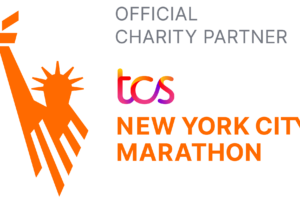The COVET (Comparison of Oral anticoagulants for extended VEnous Thromboembolism) clinical trial is now open for enrollment. This study is seeking patients who have completed an initial course of anticoagulant therapy (typically, 3 to 12 months) and who have been advised by their physician to receive indefinite anticoagulation treatment. Patients who meet the entry criteria will be randomized to one of three study arms: Warfarin (keeping the INR between 2 and 3), apixaban (Eliquis), and rivaroxaban (Xarelto). These three treatments have never been compared head-to-head for this clinical indication, and this is a very important study to determine which of these therapies is best at preventing recurrent blood clots without causing increased bleeding.
Learn more about COVET at clinicaltrials.gov, or by contacting the Duke Clinical Research Institute at covet@dm.duke.edu. A list of sites participating in this study will be available soon.
COVET Background
The long-term use of blood thinners is an important issue for patients and their healthcare providers. Some people who are at high risk for a future blood clot need to take blood-thinning medicine for longer than the standard treatment of three to six months. Some may even need to take blood-thinning medicine for the rest of their lives. For long-term use, some blood-thinning medicines may work better than others and may cause fewer complications. Deciding which drug is best for individual patients has become more complicated as the number of approved blood thinners has increased in recent years.
Duke University Medical Center recently initiated a clinical trial that is a head-to-head comparison of different blood thinners for extended treatment: The COVET Trial (Comparison of Oral Anticoagulants for Extended VEnous Thromboembolism; NCT03196349). This study is a multicenter collaboration between Canadian and U.S. investigators and is sponsored by the Patient-Centered Outcomes Research Institute (PCORI). As many as 60 medical centers will ultimately participate, enrolling 3,000 patients. The National Blood Clot Alliance is also part of the study, providing an important patient perspective to the work of the various investigators.
This study is comparing the benefits and risks of three blood-thinning medicines for people who need to take them on a long-term basis. Two medicines (rivaroxaban and apixaban) are relatively new treatments for blood clots. The third medicine (warfarin) has been available for a long time and remains one of the most frequently used blood thinners in North America.
Patients who have had an unprovoked blood clot and have been on blood thinners for 3-12 months will be eligible to participate in COVET. Each patient will be randomly assigned to take rivaroxaban, apixaban, or warfarin for 12 months of extended treatment. The investigators will determine how many patients have a bleeding event complication and how many have another blood clot during the time they are taking the assigned medication.
This study can help patients and their doctors decide which medicine will best help them prevent blood clots and be safe to take for a long period. The research team is looking at whether patients taking the newer medicines (rivaroxaban or apixaban) have fewer bleeding complications than patients taking the older medicine (warfarin). The team is also studying whether the two newer blood thinners work as well as warfarin to prevent blood clots. Finally, the research team is comparing the two newer blood thinners to each other.
Active centers at this time include:
- Duke University Medical Center, Durham, NC
- University of California Irvine Medical Center, Orange, CA
- Baylor College of Medicine, Houston, TX
- Winship Cancer Institute of Emory University, Atlanta, GA
- Ohio State University Wexner Medical Center, Columbus, OH
- Rutgers Robert Wood Johnson Medical School, New Brunswick, NJ
- Intermountain Medical Center, Murray, UT
- Henry Ford Hospital, Detroit, MI
- Vanderbilt University Medical Center, Nashville, TN
- Milton Hershey Medical Center, Hershey, PA
- Fox Valley Center for Clinical Research, Aurora, IL
- Cardiovascular Research of Northwest Indiana, Munster, IN
- Interventional Cardiac Consultants, Trinity, FL
- Saint Luke’s Hospital and Health Network, Bethlehem, PA
- University of Washington and Seattle Cancer Care Alliance, Seattle, WA
- Los Alamitos Cardiovascular, Los Alamitos, CA
- University of North Carolina, Chapel Hill, NC
- University of Minnesota Health, Minneapolis, MN
This list will be updated as new centers begin recruiting patients. Patients interested in participating, or their physicians, should contact the institution directly. Please address general questions about the COVET study to Duke Clinical Research Institute at covet@dm.duke.edu.
Read more about clinical trials here.
Read more about the treatment of blood clots here.






